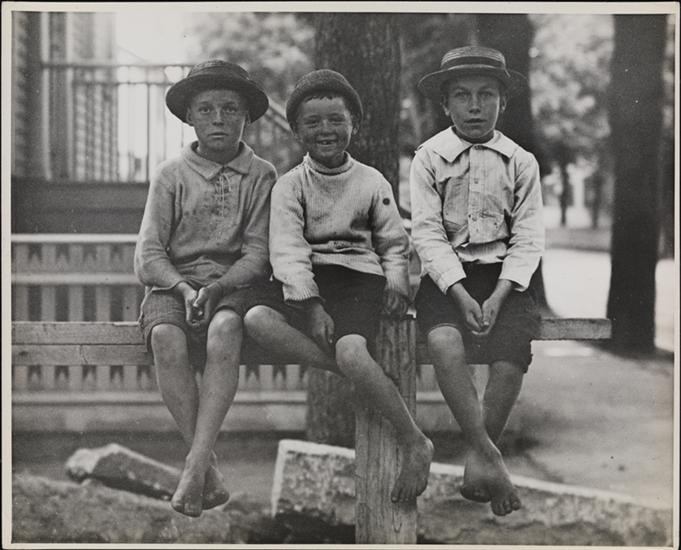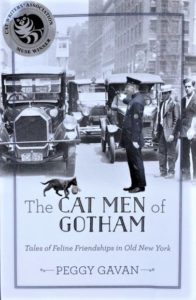Cats in the Mews: June 9, 1907

The following story is taken word-for-word from the New York Sun. While I seldom ever repeat a news article in full, I don’t feel I can do these poor Hell’s Kitchen cats of Old New York any more justice than the Sun reporter tried to do 113 years ago.
It’s also a great article with the timeless themes of rich vs poor and weak vs strong, and a novel way to explore how one’s birth place and environment greatly affect one’s odds of survival — from a cat’s perspective. So without further ado…
The Cats of Hell’s Kitchen
The cats of Hell’s Kitchen are tough cats. They are tough for the same reason that the cats of Fifth Avenue are genteel. It is all a question of environment.
A Hell’s Kitchen cat transported to Fifth Avenue would probably dive beneath the sofa and remain there until it died. Were a Fifth Avenue cat suddenly dropped off in Hell’s Kitchen, it would die foolishly within a half hour from one (or more) of a dozen causes.
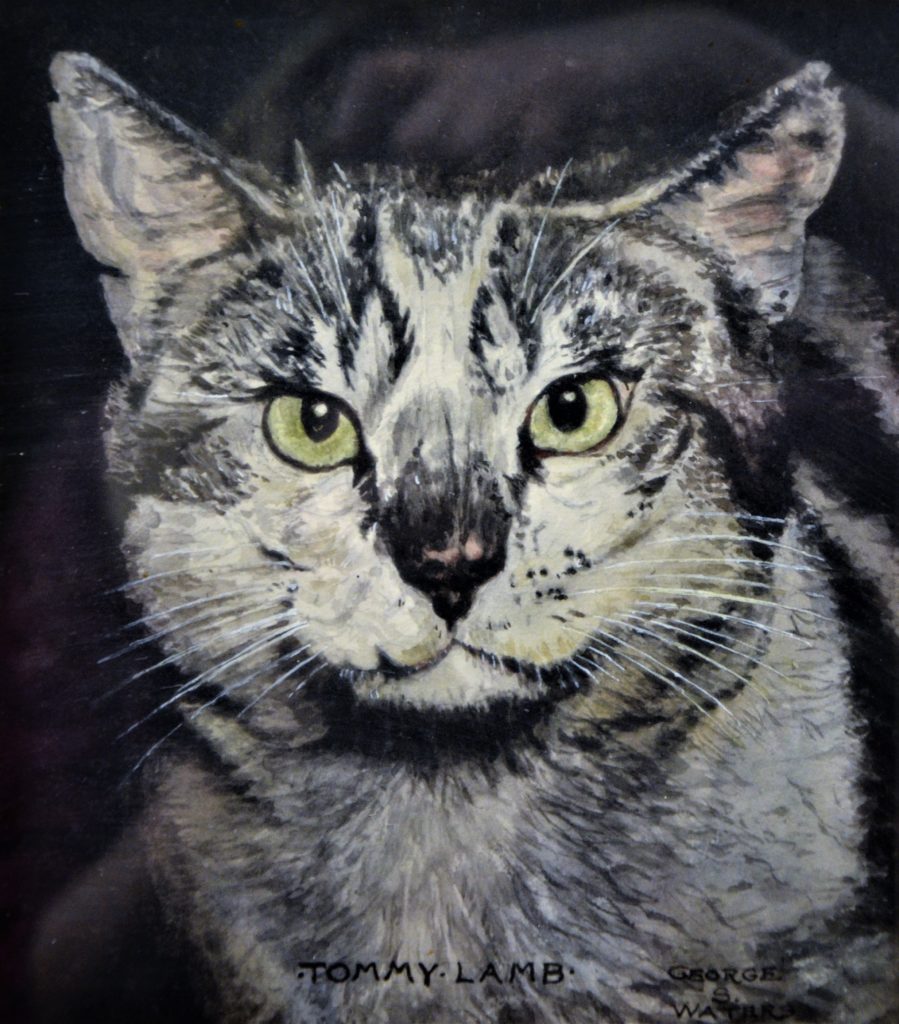
Along all the length of Tenth Avenue from Thirty-second to Forty-fifth there is not a tabby that takes a kind word at its worth. Stop in the middle of a sidewalk some midnight when all the street is deserted save for the shadows that slink from ash barrel to areaway and back to the random lumber pile and call kindly after one of the black streaks that dash across the line of light from the street lamp. It will stop for a fraction of a minute.
Whisper after it soothingly and bend down in inviting attitude and that blotch against the gray of the pavement will dart out of sight in a twinkling. The law of life for cats and men in Hell’s Kitchen is the same; only the swift and the ready in battle live to eat.
A Hell’s Kitchen cat is born where no boy can find it and where no man can crush out its life. Nor must the lean mother forget that there are dogs and larger cats to worry the life out of her young. Away back in the darkness under some tenement or in the loft of a ramshackle barn is the nursery.
Through some hidden crack the mother dodges in and out in the forage for food and while she is gone the infants must not so much as peep lest there come that way a pair of strange green eyes and a ravening mouth. Fear is the first lesson of the kitten, and it is also the stern faith of the grown cat.
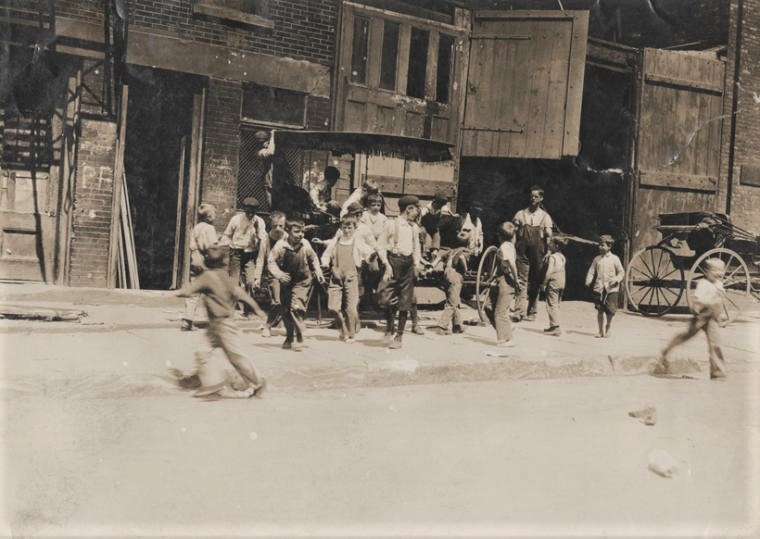
When the sprawling legs have got strength and the blue eyes of the kitten are open and staring then only will the gaunt mother cat allow the toddlers to slip through the hole in the basement boarding or out to the shed roof near the nursery nest. The little fellows roll and tumble over one another, bat with their weak paws in mimic warfare, and claw their brothers as they will claw another cat someday when the supremacy of the alley is at stake between two champions.
The mother lolls near the edge of the corner board where she can keep her eye on the approaches, for even in the brief period when the Hell’s Kitchen kitten may play before the serious work of fighting and eating begins there is ever the danger that lurks behind every kitten’s shoulder.
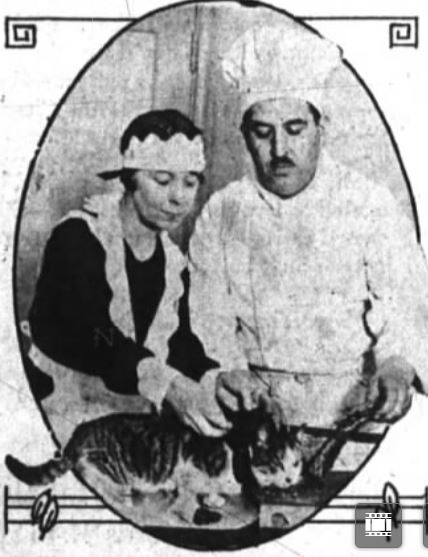
The infant matures quickly in Hell’s Kitchen, whether he be kitten or baby. Babies are left to fight the flies and the dogs on the doorstep of their mother’s house before they can walk. Kittens must soon begin the sharp fight to live. It is quickly and sternly decisive. Either the kitten can skulk better than his fellow, fight better than his fellow when cornered and thus drive his fellow to the gutter and the street sweeper’s can or his life is short.
The lean, sickly looking shadow that slips warily from ashcan to ashcan by night or hides under the fruit vendor’s shelf in the blazing noonday, dashing out for the scrap of meat flung from the butcher’s stall and back again to cover before a brick or a broom can reach it, is the cat that gains wisdom with each pinched day. He knows no code but that of self-preservation. His enemies are legion.
There is a boy who will train him with a baseball bat for sport. There is the bulldog belonging to the colored sport around the corner, whose cat killing record is the boast of his master. The shopkeeper misses a fish and slays the first cat he corners forthwith. The woman who finds her wash streaked with paw marks wields a murderous broom.
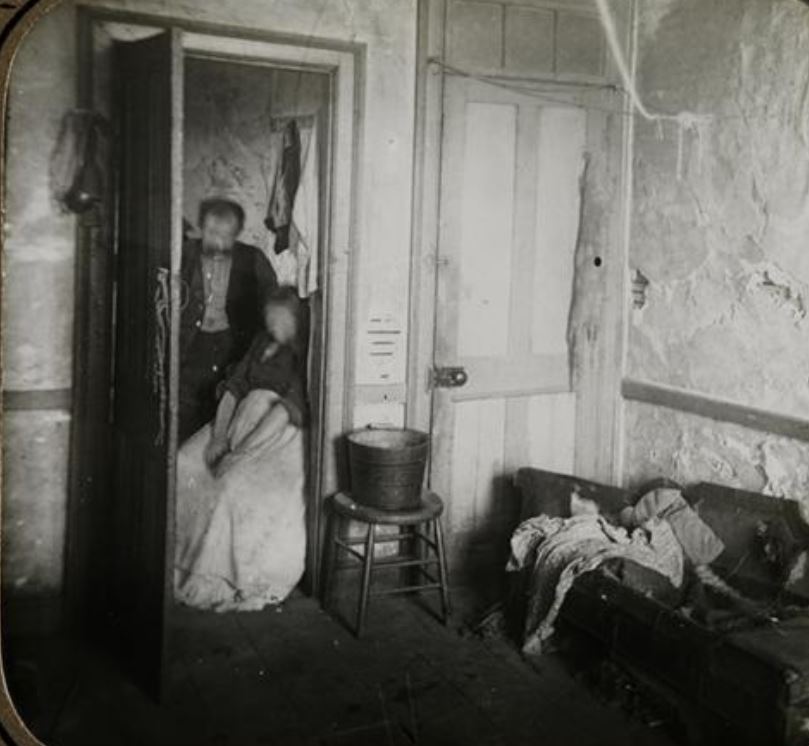
One fearful lesson the young cat learns early down in Hell’s Kitchen, avoid the road. How many mangled heaps of fur does he see on those two lines of steel where runs the clanging yellow car? A horse cares nothing for a cat; he will step on one rather than shy and get a lashing from his master. The wagons that roll back and forth in a tangle of spokes first terrify and bewilder, then they kill.
The starveling youngster in draggled fur that lives a day and then another down in Hell’s Kitchen has little choice of foraging. There are the ashcans where scraps of tainted meat may be burrowed for, but if a cat drops into an ashcan his head is below the rim and he cannot see approaching danger.
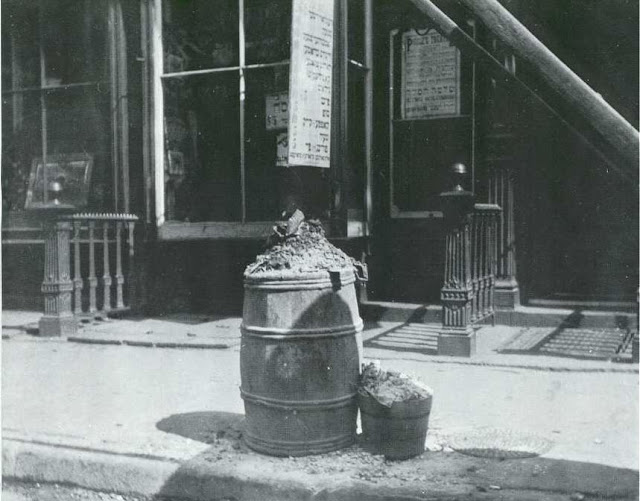
Or perhaps there is a trail over fences and sheds up to the back stoop where the housewife keeps her meat in a wire safe; should she by any chance forget to latch the door there is more than a meal there, and the whole joint may be carried off to be devoured at leisure. But beware of the meat that lies temptingly within reach in the back yard; it is probably poisoned.
Of course down by the packing houses on Eleventh Avenue there are meat scraps, bones and bits of hides that may be chewed upon. But then there are the dogs — great starved curs that fight all day long. When they have crept to their holes at night there is little left for the cats and the biggest get the pickings. Then, too, where they clean fish at the markets there are delicious morsels if one can dodge between the legs of the cleaners.

For those that survive the hard months of youth there is one pleasure and one alone. That is the midnight gathering. When all the roaring men and women have gone to their burrows up and down the length of the darkened streets, when the last piano tinkle is stilled and the midnight squad have tramped away from the police station, then come the cats of Hell’s Kitchen to mingle in sweet intercourse.
Out of the dark areaways, hidden alley ends and shadowy lumber yards they come; dodging up the street from shadow to shadow, dashing across lighted spaces like smoky flickerings of an oil light. They slink up the street in the shadows of the tenements to gather in groups of twos and threes and squat with unblinking eyes to yowl into each other’s faces the gossip of the street or to screech sweet nothings of love.
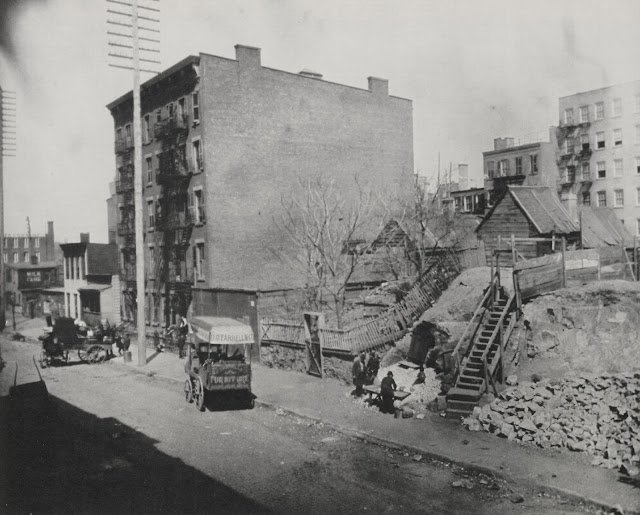
Sometimes two of the younger cats will crouch and spring at each other in mock battle or chase a rubber ball that a youngster has lost in the crack of the coping, but their play is done rather shamefacedly and only in halting fits and starts, for a Hell’s Kitchen cat knows that play is not for him.
